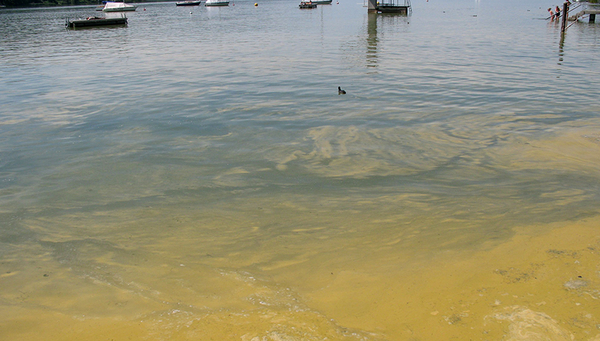News Detail
How climate change is affecting Swiss waters
May 29, 2019 |
Despite the effects of climate change it will be possible to maintain the high quality of Swiss waters through management and adaptation, according to a new Eawag report. In comparison to the effects on water quality, changes to the ecology of water bodies will be less easy to mitigate. These include the proliferation of invasive species that are adapted to warmer temperatures, a shift in habitats to higher-lying areas, and increased fish mortality as a result of heat waves.
Better nutrient management in catchment areas can, to some extent, mitigate critical impacts on lakes, such as reduced oxygen concentrations at deeper layers or cyanobacterial blooms in late summer. Similarly, pollution spikes such as overflow from wastewater treatment plants during floods or the occurrence of plant protection agents in agricultural catchment areas, can be prevented by reducing inputs and improving wastewater management. It is certainly the case, however, that some changes in water quality, including increasing water temperatures or a seasonal shift in the flow regime of rivers, cannot be prevented even through management means. In addition, many of the effects of climate change on waterbodies will be indirect; for instance, changes in land use, which will in turn influence water quality.
In comparison to effects on water quality, changes in the ecology of waterbodies are more likely to occur and are less easy to mitigate. These include the proliferation of invasive species that are adapted to warmer temperatures, a shift in habitats to higher-lying areas, and increased fish mortality as a result of heat waves.
This study was commissioned by the Federal Office for the Environment as part of the NCCS priority theme of “Hydrological principles of climate change” (Hydro2020).
Funding
FOEN
Original publication
Benateau, S.; Gaudard, A.; Stamm, C.; Altermatt, F. (2019) Climate change and freshwater ecosystems. Impacts on water quality and ecological status

